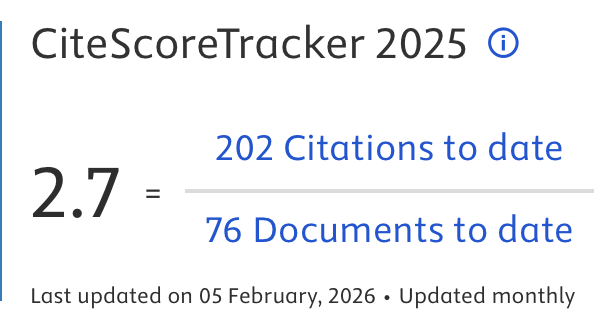PENAZAMAN HADIS TENTANG AL-QUR’AN (Kajian Kitab al-Masabih an-Nuraniyyah fi al-Ahadis al-Qur’aniyyah Karya KH Abdullah Umar)
DOI:
https://doi.org/10.14421/qh.2015.1602-02Abstract
; ">This article is trying to dwell upon a subject about an Indonesian opuswhich could be categorized into Koranic and Hadith Studies, that is alMaṣābiḥ al-Nūrāniyah f Naẓm al-Aḥādīs al-Qur’āniyyah, by K.H. AbdullahUmar al-Hafiz (1929-2001). He were a well-known muslim scholar in
Koranic Studies particularly for Islamic Boarding School communities in
Semarang. His effort in helping forward the education on Koranic studies
were recognized in several regions in Indonesia as well as to the nearestneighboring countries. Al-Maṣābiḥ al-Nūrāniyah f Naẓm al-Aḥādīs alQur’āniyyah is unique, it comprises with poems of Prophet Muhammad’s
hadiths that consist of all objects about Koran especially related to the
position of Koran, the virtues of memorizing, and reading it. There are
53 palindromes of poem, each of 2 poems are a prelude which consist of
approbation to Allah and invocation to the Prophet. While the rest of the
book is the chapter “Fad} a>’il al-Qur’a>n“ (The virtues of Koran) amounting
about 51 poem palindromes. Each of them is translated row by row and
was used for a traditional translating in traditional Islamic boarding
schools. The purpose of this practice is to get a language learning, either
nahwu, saraf or vocabularies mastering.
References
Downloads
Issue
Section
License
Publishing your paper with Jurnal Studi Ilmu-ilmu al-Qur'an dan Hadis means that the author or authors retain the copyright in the paper. Jurnal Studi Ilmu-ilmu al-Qur'an dan Hadis uses license CC-BY-NC-ND or an equivalent license as the optimal license for the publication, distribution, use, and reuse of scholarly works. This license permits anyone to copy and redistribute the material in any medium or format and must give appropriate credit, provide a link to the license, and indicate if changes were made. If you remix, translate, transform or build upon the material you may use it for private use only and not for distribution. Jurnal Studi Ilmu-ilmu al-Qur'an dan Hadis granted an exclusive non-commercial reuse license by the author(s), but the author(s) are able to put the paper onto a website, distribute it to colleagues, give it to students, use it in your thesis, etc, so long as the use is not directed at a commercial advantage or toward private monetary gain. The author(s) can reuse the figures and tables and other information contained in their paper published by Jurnal Studi Ilmu-ilmu al-Qur'an dan Hadis in future papers or work without having to ask anyone for permission, provided that the figures, tables, or other information that is included in the new paper or work properly references the published paper as the source of the figures, tables or other information, and the new paper or work is not direct at a private monetary gain or commercial advantage.
Jurnal Studi Ilmu-ilmu al-Qur'an dan Hadis journal Open Acces articles are distrubuted under the Creative Commons Attribution-NonCommercial-NoDerivatives 4.0 International (CC BY-NC-ND 4.0). Article can be read, copy and redistribute the material ini any medium or format under the following conditions:
Attribution — You must give appropriate credit, provide a link to the license, and indicate if changes were made. You may do so in any reasonable manner, but not in any way that suggests the licensor endorses you or your use.
NonCommercial — You may not use the material for commercial purposes.
NoDerivatives — If you remix, transform, or build upon the material, you may not distribute the modified material.










